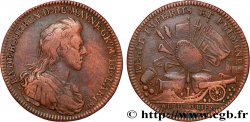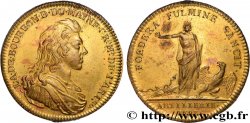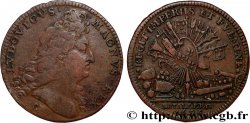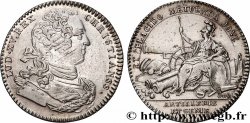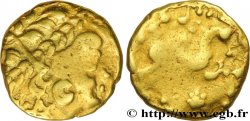fjt_116383 - ARTILLERY Henri de Daillon, comte du Lude 1683
140.00 €(Approx. 163.80$ | 121.80£)
Quantity
Add to your cart

Type : Henri de Daillon, comte du Lude
Date: 1683
Metal : silver
Diameter : 27,5 mm
Orientation dies : 6 h.
Edge : lisse
Rarity : R1
Coments on the condition:
Très bel exemplaire avec une légère patine
Catalogue references :
Obverse
Obverse legend : ARTILLERIE. DE. FRANCE.
Obverse description : Écu aux armes de Henri de Daillon, couronné et entouré des deux colliers des ordres, posé sur un manteau et au-dessus de deux canons affrontés.
Reverse
Reverse legend : (FLEUR) AD ARMA. CONCITANT. IMPERIVM. QVE. FRANGENT.
Reverse description : Sur le sol deux mortiers, dont l’un sur son affût, trois canons dont l’un sur son affût ; deux barils de poudre, des bombes, des boulets et un treuil ; à l'exergue : 1683.
Reverse translation : (Ils courent aux armes et fracassent l'empire).
Commentary
Henri de Daillon (ap.1622-1685) est comte du Lude, puis duc du Lude (1675) et Pair de France. Il est aussi marquis d'Illiers, baron de Briançon et seigneur de Pontgibault. Capitaine et Gouverneur de Saint-Germain, Premier Gentilhomme de la Chambre, il est depuis 1669 Grand Maître de l'Artillerie de France. Il épouse Renée de Bouillé, comtesse de Créance puis en secondes noces, le 6 février 1681, Marguerite de Béthune (1643-1726), fille de Maximilien François, second duc de Sully et de Charlotte Séguier, et veuve du Comte de la Guiche. En 1667, elle est dame d'honneur de la reine Marie-Thérèse puis en 1696, elle est nommée dame d'honneur de la duchesse de Bourgogne, Marie-Adélaïde de Savoie. Henri de Daillon porte d’azur, à la croix engrêlée d’or
Voir http://fr.wikipedia.org/wiki/Henry_de_Daillon .
Henri de Daillon (after 1622-1685) was Count of Lude, then Duke of Lude (1675) and Peer of France. He was also Marquis of Illiers, Baron of Briançon and Lord of Pontgibault. Captain and Governor of Saint-Germain, First Gentleman of the Chamber, he had been Grand Master of the Artillery of France since 1669. He married Renée de Bouillé, Countess of Créance and then, on February 6, 1681, Marguerite de Béthune (1643-1726), daughter of Maximilien François, second Duke of Sully and Charlotte Séguier, and widow of the Count of la Guiche. In 1667, she was lady-in-waiting to Queen Maria Theresa and then in 1696, she was appointed lady-in-waiting to the Duchess of Burgundy, Marie-Adélaïde of Savoy. Henri de Daillon wears azure, with a cross engrailed in gold See http://fr.wikipedia.org/wiki/Henry_de_Daillon
Voir http://fr.wikipedia.org/wiki/Henry_de_Daillon .
Henri de Daillon (after 1622-1685) was Count of Lude, then Duke of Lude (1675) and Peer of France. He was also Marquis of Illiers, Baron of Briançon and Lord of Pontgibault. Captain and Governor of Saint-Germain, First Gentleman of the Chamber, he had been Grand Master of the Artillery of France since 1669. He married Renée de Bouillé, Countess of Créance and then, on February 6, 1681, Marguerite de Béthune (1643-1726), daughter of Maximilien François, second Duke of Sully and Charlotte Séguier, and widow of the Count of la Guiche. In 1667, she was lady-in-waiting to Queen Maria Theresa and then in 1696, she was appointed lady-in-waiting to the Duchess of Burgundy, Marie-Adélaïde of Savoy. Henri de Daillon wears azure, with a cross engrailed in gold See http://fr.wikipedia.org/wiki/Henry_de_Daillon







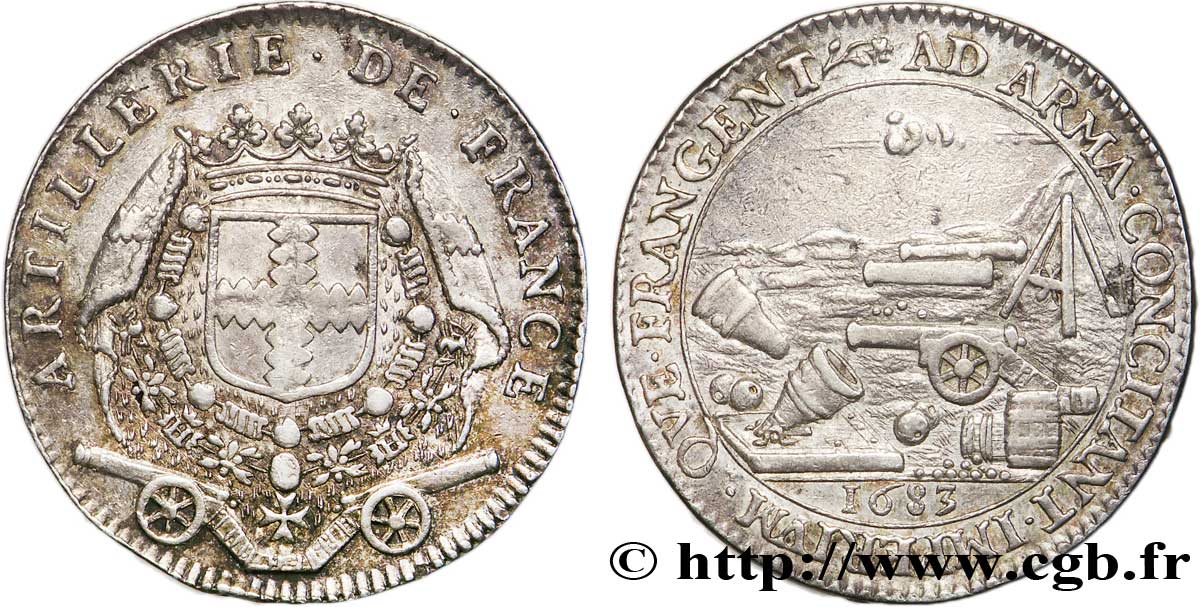
 Report a mistake
Report a mistake Print the page
Print the page Share my selection
Share my selection Ask a question
Ask a question Consign / sell
Consign / sell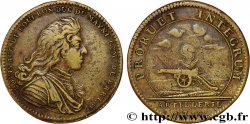
 Full data
Full data